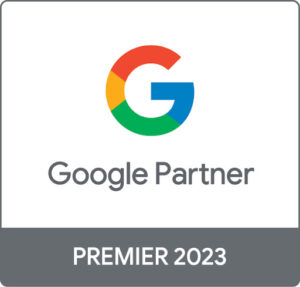The global pandemic that led the world to come to a halt, caused stock markets to crash and an astronomical amount of job layoffs forced us to create a ‘new normal’.
In retaliation, almost overnight many companies underwent a digital transformation. Having to update new systems and adjust their processes to be digital proof and effectively remotely. Those who didn’t do so- suffered. Primark, for example, a clothing retailer whose sales went from 650m to 0 in a matter of moments, all due to their lack of digital presence.
As a graduate student entering the market it was very clear to me that now more than ever companies across globally needed to be driving digital as a way to boost revenue and sales.
How has COVID-19 affected businesses & marketing?
Although most businesses have contingency plans in place for economic disasters, no plan could prepare a business for the Covid-19 pandemic outbreak . Understandably, due to the uncertainty and ambiguity that this brought on. Many businesses’ reaction to the unknown is to withdraw budgets and operations due to the punch that the circumstances have had to their bottom line.In such uncertain times, the easiest operations to halt or slow down are usually the first to see budget cuts.
Marketing is an industry with a huge target right above its head as it can be seen as a ‘nice to have’ addition in an organisation. However, recent research has shown that those who during the 2008 recession cut their advertising and marketing budgets were worse off compared to those who didn’t stop.
As the famous saying goes “When times are good you should advertise. When times are bad you must advertise.”
A graduates perspective of the changing landscape of digital marketing post COVID-19
As a graduate of class 2019 , I was born into a world where the sphere of digital was about to accelerate unlike any other time in history. The experience of watching new technologies reconstruct society at such a rapid, yet seemingly effortless speed lured the inquisitive side of me into the industry of digital marketing.
The advantages of being a graduate in digital marketing during COVID-19
Additionally being a recent graduate to the digital marketing industry has meant that prior to COVID-19 I was already in a stance of primed to learning, being flexible and not having a set expectation of the trajectory for the industry. This has allowed me to observe from my perspective such as, how things that were relatively new to me prior to COVID-19 may or may not change post-COVID. As the common saying goes “A new broom sweeps clean”. The changes we see in the market are just a new opportunity to adapt to these changes and emerge an industry that is not only more advanced but bursting at the seams with demand.
For example, the online video game retailers in the US saw a rise in spend on their marketing budget unlike any time before due to COVID-19. A prime example of how the factors at play have changed the game that is paid advertising in some industries.
As it is undeniable the digital economy is deeply embedded in every crevice of our lives, with the average British adult spending 34 years on a screen. In addition, 93% of online activity starts with a search engine and that also now includes voice search.
With such a significant global change to the way we live, it has naturally affected the way in which we search.
How has COVID-19 affected our buying behaviours?
As lockdown was enforced in the UK in March 2020, we have been forced to change our buying behaviours, due to the unessential shops being closed. We have had to turn meetings into calls, and shopping into online shopping.
This hasn’t been favourable for all markets with many consumers needing more time to convert. Nevertheless, new segments of consumers have emerged through this time, whilst some may have paused activity until their feet are on stable ground. In Italy, one of the countries to be among the first in Europe to have introduced country-wide quarantines in mid-March, they witnessed online traffic spiked 30%.
It was clear to me that the effects of COVID-19 may eventually propel the demand for the services of digital marketing in the near future. The true question is who will be there to supply that and how will their offerings differ in a competitive market.
It is very evident the Lockdown in the UK created a surge of search queries to users looking to purchase services and goods online. Despite seeing it decrease this figure is plateauing considerably higher than before.
So in this article, I will diverge the two trends and directions that I believe will arise and what businesses can do to respond to the imminent change and challenges that face them.
Businesses either use a cross channel or/and omni-channel approach.
The clear message that Covid-19 has drummed into my ears in relation to the majority of businesses is they need an online presence post COVID-19. This would heavily depend on context. With all changes arising in our society, economy and industries, it must make sense and ultimately benefit the user.
Having an online touchpoint somewhere if not at several points in a consumer’s journey will benefit all-sized businesses. Business can no longer rely simply on physical store visits, despite them still playing a key role in the future of consumer buying behaviours. A smart approach would be to double up and use digital campaigns to prompt and even reward users to shop online or in-store. This supports the argument that businesses should and may begin to sell their products across more than one channel. This would mean also communicating and beginning and upholding conversations on those channels too.
Prior barriers to creating a cross channel and omni-channel marketing approach no longer exist.
I believe that post covid the the barriers of technological systems and processes will continue to disappear. This would be due to more businesses investing into these areas and an increase of demand for the need of suppliers of technological systems that are so needed for businesses to operate through multi-channels.
The digital marketing industry now has an increase of eyes falling on it for its services that are now looking to be more valuable than ever as we enter a new world and a new way of thinking, post-COVID 19. Additionally, the barrier of culture both from consumers and those within businesses has been forced to realign with the new digital agenda. Staff who may have worked in clients front-facing part of the business will also be led to think about those who may be online.
For example, the event industry may begin to sell virtual aspects of events and workshops meaning people running them will have online customers in mind whilst running them.
Therefore, allowing many businesses to adopt more of an omni-channel approach ,where the overall user experience is to a higher quality. This can be done by delivering a seamless, consistent voice and cohesive brand message across all channels, to generate much better digital marketing campaigns.
Why current and future clients should be reassessing their online presence from a graduates perspective.
Here’s why I say this. Once a consumer has been forced to reap the benefits of carrying out the majority of their activities online such as food shopping, socialising, browsing and working they are going to be very likely to continue or be more open to continue doing so in the future. It can be guessed based on consumer behaviour psychology that the users will be more open and likely to continue to use online services or to search online for products and services. People like to be consistent with the things they have previously said or done.So, it can be guessed that the new surge of consumers flocking to interacting with the online versions of their favourite brands is something that may also continue post COVID-19.
Being online means when potential customers actively search you will be there ready to meet their needs before competition. Even if consumers do go back to the face-to-face business they are still more likely to want to search the business or brand online, to see opening times, find out more about the services to shorten the journey to purchase. Due to this, having a social media presence, a Google My Business, online customer support and even PPC adverts is all recommended to be visible online.
To conclude, businesses will need to move into social marketing, content marketing, SEO and influencer-led campaigns to be able to actually profit from the need to be online. If they are already investing in these areas they may grow and those who haven’t, should begin to! This is supported by a quote from the CEO of 123 internet group who has said to see “a real spike during the last weeks from companies wishing to create or update websites, launch new e-commerce channels and create social media campaigns.”
AI intelligence use to personalise digital marketing.
I believe that many businesses will adopt an omni-channel approach to their operations and marketing. Off the back of this, I think will come the implementation of AI Tech.
As AI technology improves, businesses can leverage data insights and machine learning to get a better understanding of customer behaviours. This can then be used to personalise to consumers at the highest level to provide a better user experience.
Now with the possibility, a multitude of businesses are beginning to use digital marketing interweaved amongst multiple channels. Through the use of AI businesses will be able to analyse consumer behaviour and search patterns to a greater extent than any human. Then in turn, use this data to help businesses understand how customers find their products and services.
A clear example of a market leader in this trend that I foresee expanding in the digital marketing industry post COVID- 19 in 2020 is the company Master card. They have created a Facebook messenger bot which mimics human-like conversations to decipher a customer’s needs and wants and how to help.
This leads me to believe that we may be able to see AI technology in the areas of:
- Basic communication
- Product recommendations
- Content creation
- Email personalization
- E-commerce transactions
Final thoughts from me!
How digital marketing will change is anyone’s guess, these are only two trends and insights from a graduate that offer a glimmer of opportunity for the industry to prepare for a wave of supply, depending on many factors.
So, as you can see, things are moving fast in the digital marketing world and the worst thing to do would be to stay stagnant. As the world is demanding that digital marketing morphs parallel to the world, in new and exciting ways that make the customer journey easier and more enjoyable.
COVID-19 has forced many changes that have impacted consumers and the companies selling to them. This, of course, will only impact the digital marketing industry as for many agencies who are middlemen between the two bridging communications online regarding product offerings. How we go about meeting these changes may also depend on the digital marketing agent and where they sit within the market. Nevertheless, the services within the industry due to COVID-19 are very important and probably will continue to be so to a great extent post-COVID-19.










